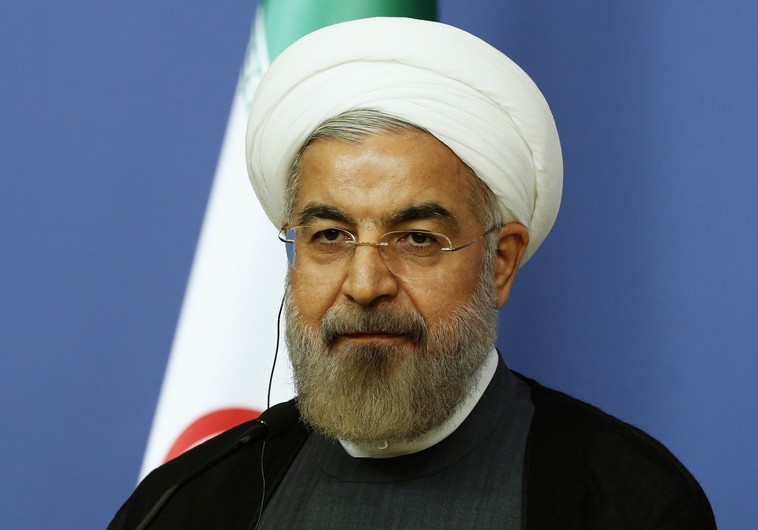Iran’s human rights failure
By BENJAMIN WEINTHAL/J.Post/02/01/2015
HRW report details Rouhani’s lack of progress, broken promises
The Islamic Republic of Iran’s human rights record remained atrocious under the so-called moderate President Hassan Rouhani, according to a newly released Human Rights Watch report on Wednesday.
The New York-based HRW described the conditions as “dire” in Iran and wrote that the country’s intelligence and judiciary “carried out serious rights abuses throughout 2014.”
The report’s finding are a far cry from Rouhani’s 2013 pre-election campaign promise that “all ethnicities, all religions, even religious minorities, must feel justice.”
The US and Europe have been reluctant to criticize Iran’s widespread human rights violations in order to not disturb, from the West’s perspective, the delicate negotiations to end Iran’s illicit nuclear weapons program.
HRW wrote, “Executions, especially for drug-related offenses, continued at a high rate.
Security and intelligence forces arrested journalists, bloggers and social media activists, and revolutionary courts handed down heavy sentences against them.”
Iranian media sources said at least 200 prisoners were killed by October 2014 “but opposition sources said they carried out another 400 unannounced executions. Some executions were public.”
Iran’s regime imposes the death penalty for offenses including, “insulting the Prophet,” apostasy, same-sex relations and adultery.
The report noted that “Officials apparently stepped up their crackdown on dissent through the Internet.” One infamous cased involved the May arrest of four men and three women showing them dancing to the song “Happy,” which was posted on YouTube. Iran’s said the young people were involved in “illicit relations.”
Rouhani has not made any effort to stop the violent repression of labor unions. According to HRW, “the judiciary continued to target independent and unregistered trade unions. On May 1, police attacked and arrested at least 25 workers who were protesting poor wages and labor conditions outside the Labor Ministry and a Tehran bus terminal. Police took the workers to Evin Prison before releasing them. Several of them face charges related to illegal gathering.”
Misogynistic laws and policies remain the norm in Iran. HRW wrote, “In 2014, authorities announced or implemented discriminatory policies, including restricting the employment of women in coffee shops, certain restaurants and other public spaces and limiting access to family planning as part of official measures to boost Iran’s population.”
Iranian women face disparate treatment in marriage, divorce, inheritance and child custody.
“Regardless of her age, a woman cannot marry without the approval of her male guardian, and women generally cannot pass on their Iranian nationality to a foreign-born spouse or to their children. Child marriage, though not the norm, continues, as the law allows girls to marry at 13 and boys at age 15, and at younger ages if authorized by a judge,” wrote HRW.
Non-Muslim minorities face extreme repression.
HRW wrote Iran’s regime “denies freedom of religion to Baha’is…and discriminates against them. At least 136 Baha’is were held in Iran’s prisons as of May 2014. State authorities also desecrated Baha’i cemeteries, including one in Shiraz, which the authorities began excavating in April.
Security and intelligence forces also continued to target Christian converts from Islam, Persian-speaking Protestant and evangelical congregations, and members of the home church movement. Many faced charges such as ‘acting against the national security’ and ‘propaganda against the state.’” The ongoing severe violation of human rights and Rouhani’s pre-election promises reflect a regime that is neither serious about honoring its basic human rights norms and statements that it will not build a nuclear weapons device.
Benjamin Weinthal reports on European affairs for The Jerusalem Post and is a fellow at the Foundation for Defense of Democracies.






















